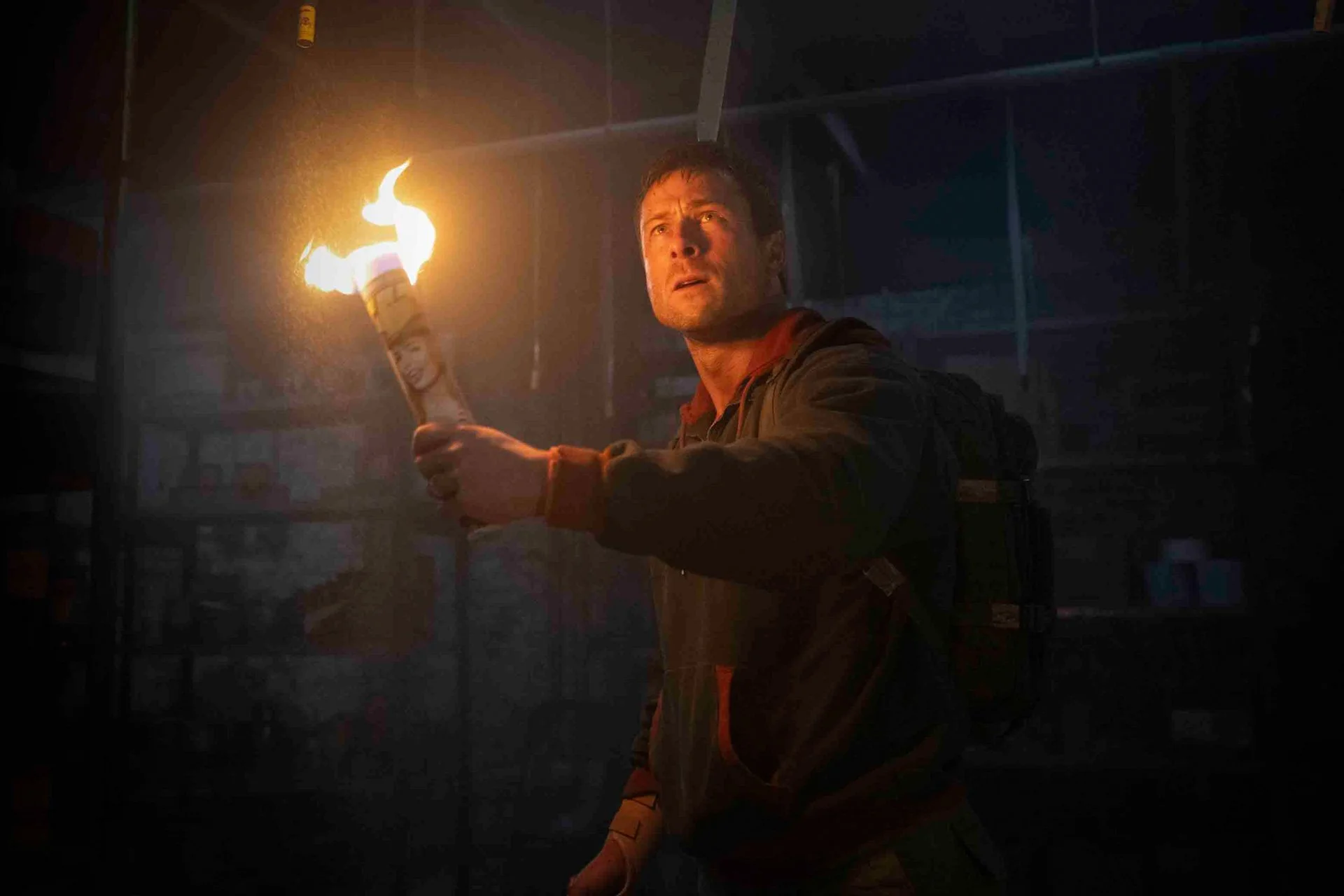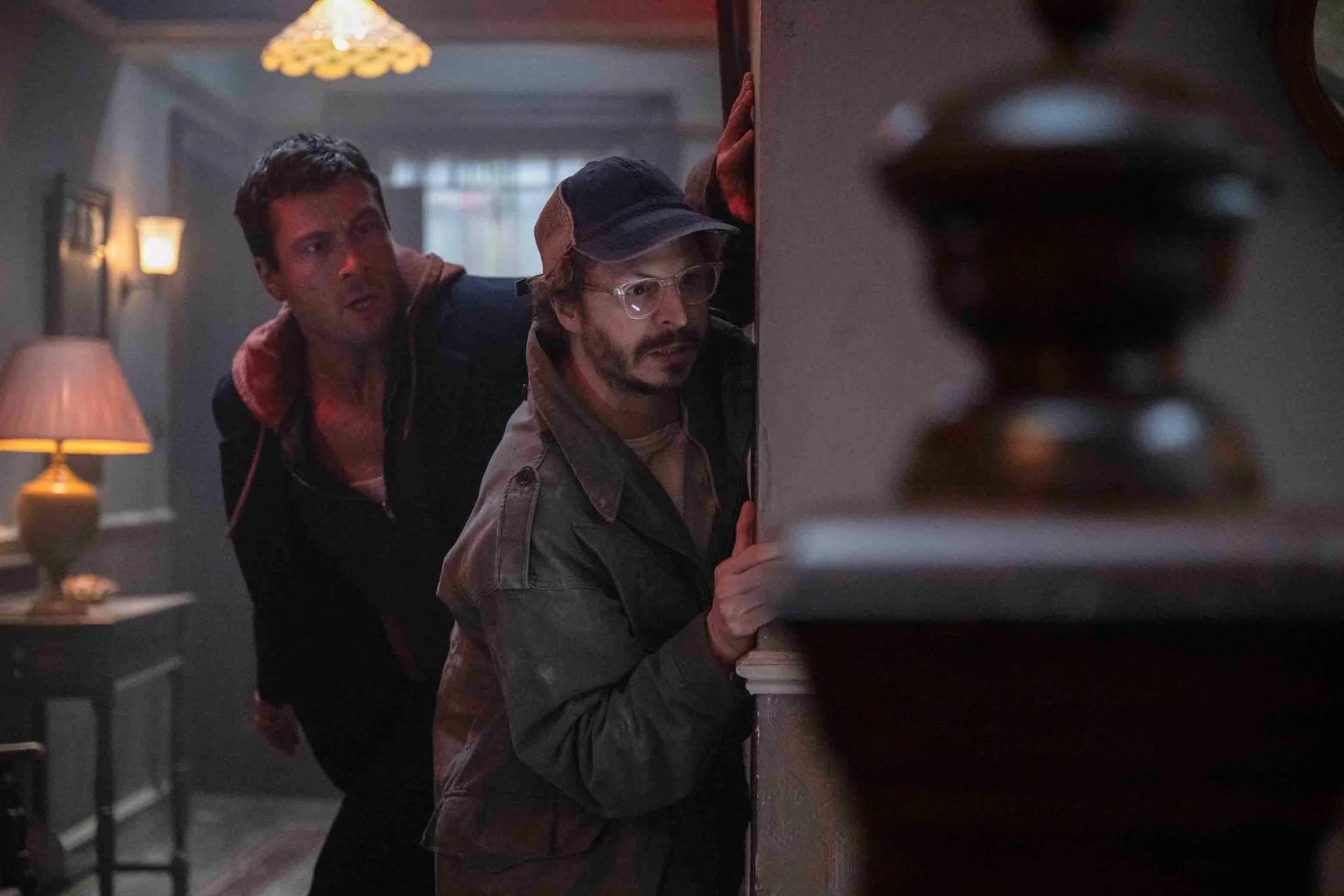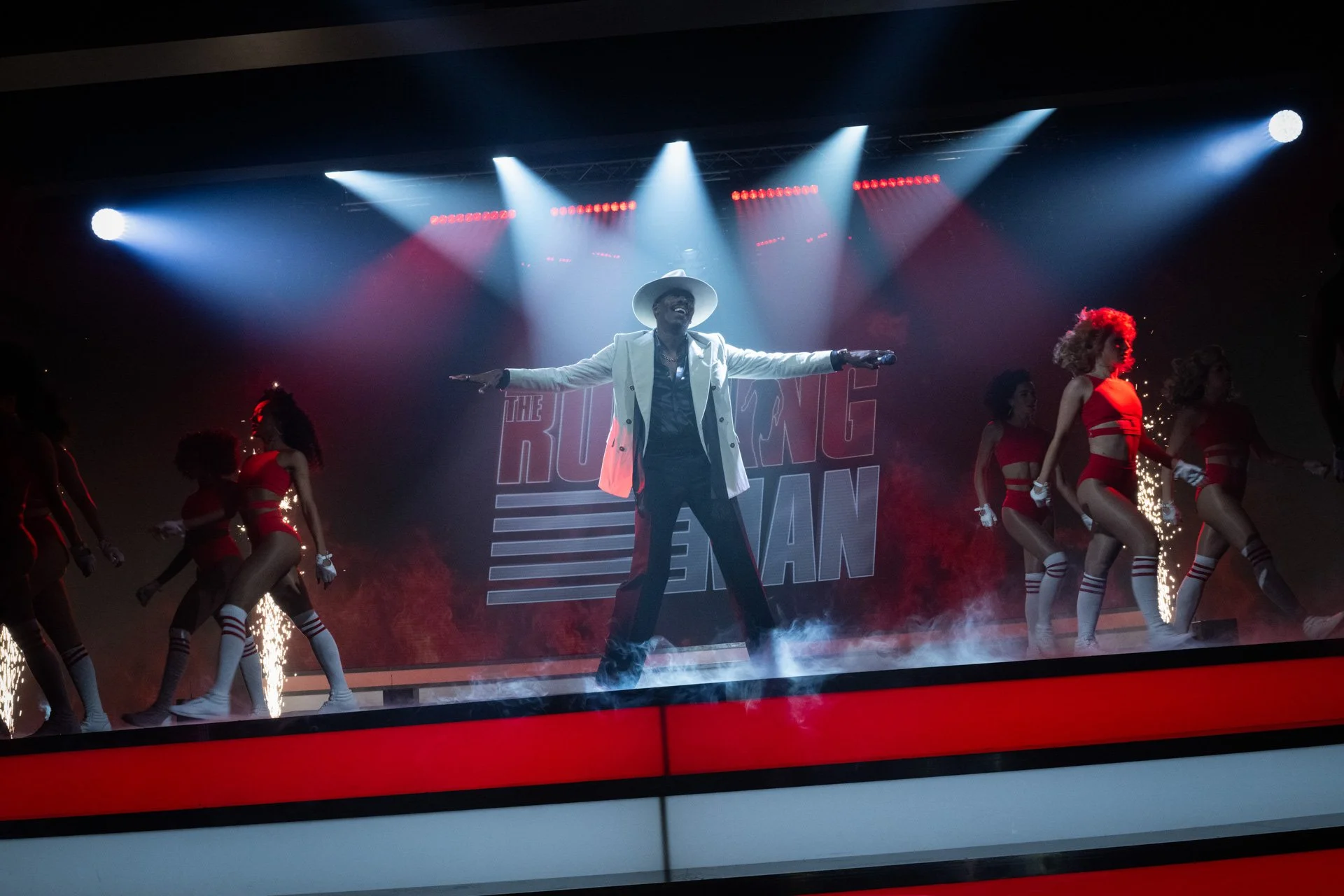Movie Review: Glen Powell's Charm Outruns Edgar Wright's Middling Remake of "The Running Man"
7/12 ForReel Score | 3/5 Stars
Four years have come and gone since Edgar Wright’s last feature film, 2021’s Last Night in Soho, which marked a worrying downturn after an otherwise stellar track record. Considering that Baby Driver was one of the movies that made me fall in love with the art form, I can't divorce myself from my longtime fondness for Wright for the life of me. I'll always be first in line for a new Edgar Wright film, which is why I was frothing at the mouth in anticipation of his latest, The Running Man. The second film adaptation of Stephen King’s (under the pseudonym Richard Bachman) dystopian-thriller novel of the same name, The Running Man is Wright at his most restrained, which simultaneously does justice to the original text and a disservice to those expecting the high-energy action bonanza Wright is most known for.
Image courtesy of Paramount Pictures
Chiseled as ever, Glen Powell stars as Ben Richards, a blacklisted blue-collar worker trying to make ends meet for his wife (Jayme Lawson) and sick child. Ruled over by a theocratic classist regime under the eponymous “Network,” one wouldn't be entirely off track in asserting that there are some glaring similarities to contemporary consumer culture and its inherent misanthropy. These aren't exactly new or groundbreaking concepts (King’s novel is from over forty years ago), but that's not to say those problems vanished since then; they've only exacerbated. It's a far cry from the campy goofiness of Paul Michael Glaser’s 1987 version, but it's not exactly a stone-cold drama, either. It's more of a paranoid political thriller than the blood-soaked action romp than I expected, with those expectations likely being set from how inaccurate the first film was. Wright’s interpretation is certainly better than Glaser’s, except I wouldn't say the bar is exceptionally high.
Even if I appreciate Wright’s subdued approach to a book that requires a steadier hand, that's not to say that his knack for snappy and fast-paced storytelling isn't missed here. At no point was I bored, but a little part of me is left wondering where the Edgar Wright I know and love had gone. Wright still knows how to stage a fun set piece and make an overall entertaining popcorn movie, but I'm left missing that in-your-face type of style that I’ve come to expect from him. In place of Wright’s colorful personality is the drab dystopia of The Running Man’s America, making me question if Wright was the right choice for this film at all. Lower-tier Wright is better than most, but this movie simply lacks the charm and energy that make his films so exciting.
Image courtesy of Paramount Pictures
They may come few and far between, but Edgar Wright still has an eye for directing action sequences like no other. Trailers marketed a more action-packed romp compared to the low-key paranoia of the finished product, and, while I do feel slightly led astray, that's not to say there isn't some great action in here. A drone-shot oner of Glen running through a motel with bullets and woodchips flying every which way is an exciting climax to a fun escape sequence, Katy O’Brian (who deserved much more screentime) has an entertaining sequence in a casino, and Michael Cera’s extended cameo is not only a highlight but a welcome reunion between him and Wright. The weakest link may come from the finale, which I felt dragged a bit too long and was slightly too CGI-heavy for my liking. What sucks is that Wright doesn't hit any of the highs set in Baby Driver, Scott Pilgrim vs. the World, or Hot Fuzz, making The Running Man feel far less exciting in comparison.
Where The Running Man lacks in visual splendor and mayhem, the ever-charismatic Glen Powell is the fuel that keeps this engine running. He's always stepped to the plate when a movie needs a disarmingly handsome asshole, but he's given more than enough time to shine in a role that plays against type perfectly. Between acting opposite Michael Cera as a radical anarchist or Josh Brolin at his most Machiavellian, Powell proves himself a worthy protagonist for a film that would otherwise fall apart without him. The internal struggle for Powell’s Ben Richards is that he's a dickhead with a heart of gold, creating a fun conundrum with him being on the cusp of likeability. The Running Man’s moral code is about as gray as its color palette, with the novel’s signaturely bleak ending being reworked into something a bit more commercially palatable for a post-9/11 American audience.
Image courtesy of Paramount Pictures
Regardless of my reservations, The Running Man is still a fun time at the movies with one of our best leading actors at the center of it all. Those expecting an all-gas-no-brakes thrill ride will be on the more disappointed side, but those who want more of a book-accurate approach will be far more satisfied than I was. This may have been one of those cases where I should've read the book beforehand (or erased the 1987 film from my memory entirely), but shouldn't every movie stand on its own merit? I’m looking forward to rewatching this with some tempered expectations, but I worry that one of my favorite working directors might have reached his dog days. Paradoxically entertaining and disappointing.




